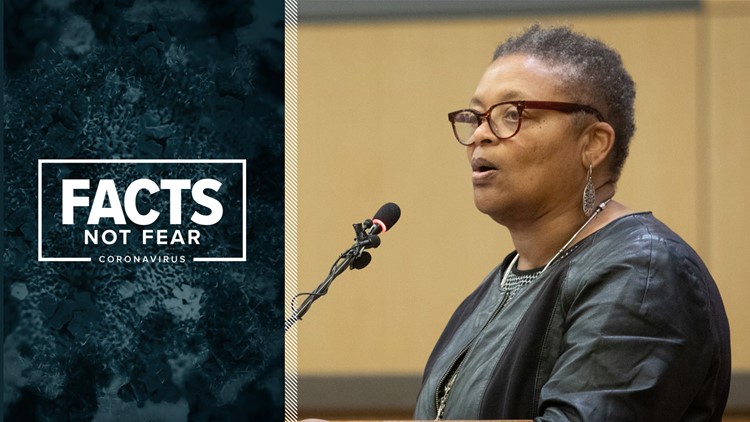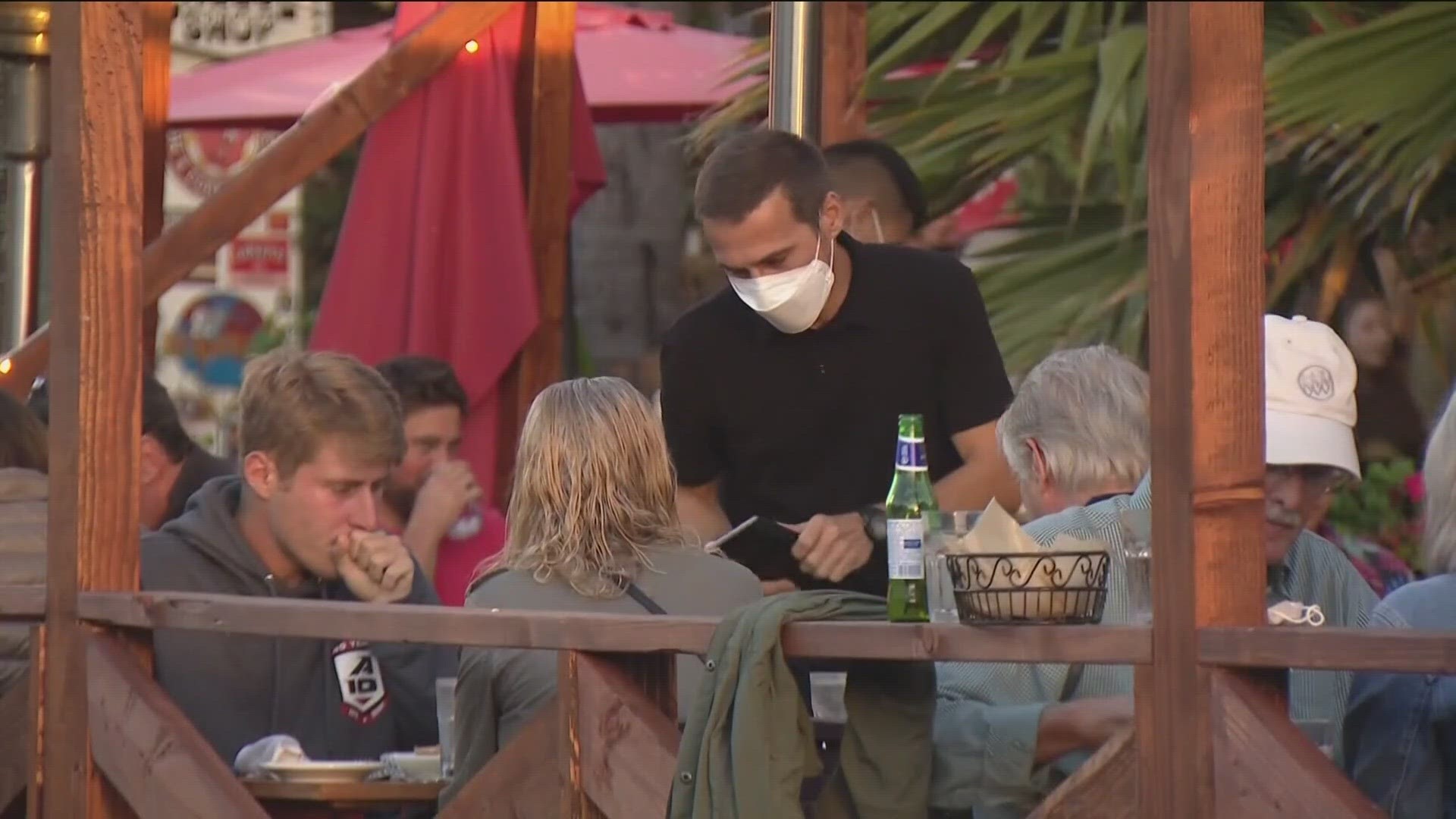SAN DIEGO COUNTY, Calif. — San Diego County officials announce 124 additional COVID-19 cases and seven additional reported deaths Wednesday bringing the totals to 7,798 and 283 respectively. The county also recorded a new daily-high COVID-19 tests with 4,940, just 3% of which returned positive.
The county's rolling average of positive tests has hit a plateau over the last several weeks, and other numbers are "trending in the right direction," according to Dr. Wilma Wooten, San Diego County's public health officer.
Officials discussed a letter voted on by the San Diego County Board of Supervisors Tuesday to Gov. Gavin Newsom to request more local control for opening and managing several Stage 3 businesses and activities.
The sectors San Diego officials want more control of include: youth sports, fitness facilities, pools, charter fishing and boating, indoor museums, hotels, wineries and breweries, and theme parks.
The letter to the governor also requests that religious facilities are allowed to open beyond the current 25% or 100-person cap as long as San Diego County has another positive week of data.
In addition to the governor's approval, the County Public Health Officer would review reopening protocols for each activity and sector before giving a final approval.
Officials also went over 13 triggers that could modify the public health order in San Diego County. According to Supervisor Nathan Fletcher, the county is currently in "green" in all 13 measurements. The triggers fall into three categories: epidemiology, healthcare and public health. If triggers in two categories occur officials would consider scaling back the public health order.
Fletcher highlighted three criteria that any of which on their own would trigger the order to be modified if any were met. Those included:
Community outbreaks: No more than seven new outbreaks in a community setting in a seven-day period.
Limited intensive care unit (ICU) capacity: Less then 20% availability of ICU beds
PPE supply: Only 50% of hospitals have at least a 15-day supply of PPE over a rolling three-day period
"Any one of these criteria could force us to take action," Fletcher said, saying that if the county triggers one of the guidelines in two of the three categories, it would also be forced to act.
"It's complicated, but it gives us our best and clearest sense of where we are," he said.
The Board of Supervisors also voted Tuesday to extend a moratorium on evictions for both residents and small businesses for another month, through June 30th.
Fletcher, along with board Chairman Greg Cox, made the request, which was unanimously approved. The board first approved an eviction moratorium in late March.
"By extending the moratorium, we are giving families and business owners another tool to assist in their recovery from the pandemic," Fletcher said.
Cox said, "This is not an effort to provide free rent. It's really an encouragement for tenants, landlords, to work together on a payment plan."
Fletcher added that people who qualify for the moratorium have to prove economic hardship caused by the pandemic.
-----------------------------------------------------------
View all News 8 coverage of coronavirus / COVID-19
News 8 has joined forces with The San Diego Foundation to raise immediate, emergency funds for our most vulnerable neighbors in need. Here is how you can help.
We also have a Frequently Asked Questions page we will continue updating with the latest information and reports.
Click here to watch "Facts Not Fear," a News 8 Special on coronavirus from March 26, 2020.
BACKGROUND
According to the CDC, coronavirus (COVID-19) is a family of viruses that is spreadable from person to person. Coronavirus is believed to have been first detected in a seafood market in Wuhan, China in December 2019. If someone is sick with coronavirus, the symptoms they may show include mild to severe respiratory illness, cough, and difficulty breathing.
Currently, there is no vaccine, however, the CDC suggests the following precautions, as with any other respiratory illness:
Know how it spreads
There is no vaccine
The best way to prevent illness is to avoid being exposed to the virus
It is thought to spread mainly from person-person between people in close contact
And believed to be spread by respiratory droplets produced when an infected person coughs or sneezes
Protect yourself
Wash your hands with soap and water for a minimum of 20 seconds
If soap and water aren't available, use hand sanitizer that contains at least 60% alcohol
Avoid touching your eyes, nose, and mouth
Avoid close contact with people who are sick
Put distance between yourselves and others
Protect others
Stay home when you are sick
Wear a facemask if you are sick
Cover your cough or sneeze with a tissue, then throw the tissue in the trash
If you don't have tissue, cough or sneeze into the inside of your elbow
Immediately wash your hands after coughing and sneezing
Clean and disinfect frequently touched objects and surfaces using a regular household cleaning spray or wipe
You can find information on disinfecting and cleaning on the CDC's How to Protect Yourself page.
The California Department of Public Health has issued guidance on the use of cloth face coverings to protect against the spread of the novel coronavirus COVID-19.
The County of San Diego has made face coverings mandatory for those working with the public including grocery stores, pharmacies, gas stations, convenience stores, and similar businesses.
While officials say these face coverings are not a substitute for practices like social distancing and handwashing, there is evidence to suggest that the use of cloth face coverings by the public during a pandemic could help reduce disease transmission. Officials do not recommend the public use N-95 or surgical masks which are needed by health care workers and first responders.



